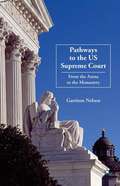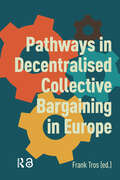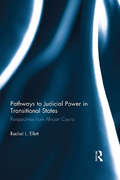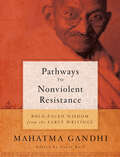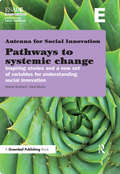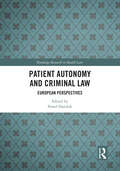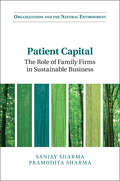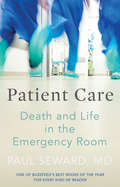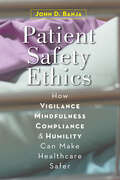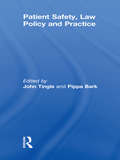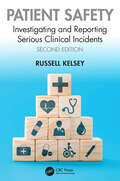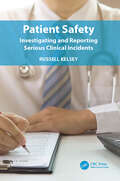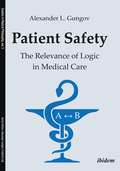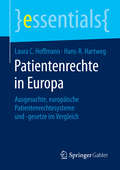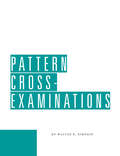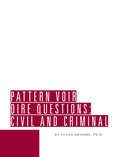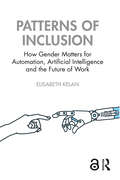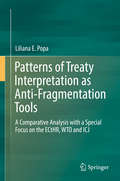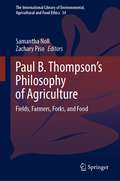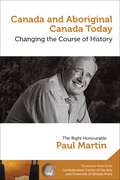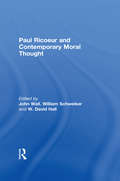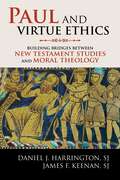- Table View
- List View
Pathways To The Us Supreme Court
by Garrison Nelson Maggie Steakley James MontaguePathways to the U. S. Supreme Court is a quantitative-historical recapitulation of the routes taken to the US Supreme Court by the 112 Justices who were confirmed by the Senate and served, and the 28 others whose candidacies for confirmation were defeated, withdrawn, or declined
Pathways in Decentralised Collective Bargaining in Europe
by Frank TrosOne of the main challenges in labour relations in Europe is the ongoing decentralisation of collective bargaining from national and sectoral levels to company levels. Decentralisation might be an answer to business needs in competitiveness and organisational flexibility. However, it risks erosion of collective bargaining structures, more inequality in employment conditions and fragmentation in trade unions' powers. Based on recent qualitative research, this book shows high varieties across European countries and economic sectors in degrees, forms and impacts of decentralisation. The authors explore, in interdisciplinary and multi-level perspectives, continuity and change in regulating and practicing collective bargaining in France, Germany, Ireland, Italy, the Netherlands, Poland, Spain and Sweden. In cross-country comparisons, company case studies in manufacturing and retail show the divergent effects of national regimes and social partners' power resources on trade unions' strategies and influence in company bargaining.
Pathways to Judicial Power in Transitional States: Perspectives from African Courts
by Rachel EllettThis book examines the complex relationship that exists between the construction of judicial power, and the institutional characteristics of the courts and their regime setting. It examines the intriguing connection between the construction of judicial power on the one hand, and the institutional characteristics of the courts and regime setting on the other. The book asks whether courts are rendered powerful by virtue of their institutional characteristics or by a supportive, perhaps acquiescent, regime setting. By analyzing the historical pathways of courts in Uganda, Tanzania and Malawi, this book argues that the emergence of judicial power since the colonial period, though fraught with many challenges, presents a unique opportunity for consolidating democracy. The book examines in detail the significant political decisions of the upper-level courts in Uganda, Tanzania and Malawi from the colonial period to the present day, analyzing them in relation to changes in the political environment over time. Analysis of these decisions is also supplemented by in-depth interviews with judges, lawyers and other important stakeholders in the judicial processes. This book demonstrates that even in the most challenging regime environments, effective institutions and determined individuals can push back against interference and issue politically powerful, independent decisions but the way in which judiciaries respond to this regime pressure varies enormously across countries and regions.
Pathways to Nonviolent Resistance: BOLD-FACED WISDOM from the EARLY WRITINGS (Bold-Faced Wisdom)
by Mohandas Karamchand GandhiIn an age of economic downturns and austerity, when the “Occupy” movement has gone global, this addition to the Bold-Faced Wisdom series couldnt be timelier. Pathways to Nonviolent Resistance re-examines and fully annotates Mahatma Gandhis early writings, offering quick insight into his pragmatic doctrines for effecting peaceful political change and promoting civil rights. Here are Gandhis formative works, the foundation upon which he built his lifelong philosophy: speeches, letters, articles, and other documents drawn from roughly 1893-1923. Key passages are highlighted; "Food for Thought" questions spur readers to think about Gandhis relevance to todays world and their own lives.
Pathways to Systemic Change: Inspiring Stories and a New Set of Variables for Understanding Social Innovation
by David Murillo Heloise BucklandThe world’s social, ecological and economic problems are so complex and diverse that there will never be a “one-size-fits-all” model for social innovation. The very nature of social innovation as a new, better way of solving social problems means that it is not even in the interest of social innovation advocates to create tidy definitions, but rather to create environments that allow for the process of creative destruction with a social purpose to prosper. Inspired by a desire to deepen our understanding of the role of social innovation in addressing today’s most pressing challenges, authors Heloise Buckland and David Murillo explore four inspiring cases and define a new set of variables to help better understand the conditions under which social innovation can be most effective. These variables can be helpful for investors, governments, academic centres, foundations and individual entrepreneurs interested in measuring the potential of any given social innovation to bring about the much-needed systemic change to solve today’s complex challenges. This book builds on a track record of research and education in corporate social responsibility and social entrepreneurship at ESADE Business School’s Institute of Social Innovation. Building on an understanding of the key characteristics and challenges faced by social entrepreneurs, here authors undertake a deeper analysis of social innovation.
Patient Autonomy and Criminal Law: European Perspectives (Routledge Research in Health Law)
by Paweł DanilukThis book shows how the legal systems of individual European countries protect patient autonomy. In particular, it explains the role of criminal law, that is, what criminal law protection of patient autonomy looks like on a European scale in both legal and social dimensions. Despite EU integration processes, the work illustrates that the legal orders of individual European countries are far from uniform in this area. The concept of patient autonomy here is generally in the context of the patient's freedom from unwanted medical activities: the so-called negative freedom. At the same time, in countries where there are no regulations clearly criminalising the performance of a therapeutic activity without the patient's consent, the so-called positive freedom is also discussed. The book will be a valuable reference work for academics, researchers and policy-makers working in Health Law, Medical Ethics, Applied Ethics and Criminal Law.
Patient Capital: The Role of Family Firms in Sustainable Business (Organizations and the Natural Environment)
by Sanjay Sharma Pramodita SharmaSustainable businesses create economic and social value while simultaneously protecting the natural environment for future generations. This examination of environmental sustainability through the lens of the family business identifies factors that help family and non-family organizations address the dilemma of balancing short-term productivity, efficiency and profitability objectives, with innovating for long-term sustainable value creation. Exploring the case of the wine industry - an industry characterized by a variety of governance systems - Sanjay and Pramodita Sharma develop fresh insights into influences and drivers for proactive environmental strategies to address major global sustainability challenges. By doing so, the authors are able to demonstrate that family firms with a focus on trans-generational continuity of business, long temporal orientation, shared vision, faster decision-making processes, and the goal of preserving socio-emotional wealth are more likely to make patient long-term investments for innovations in products, services, processes and business models to address environmental sustainability challenges.
Patient Care: Death and Life in the Emergency Room
by Paul SewardA memoir of over four decades working in the ER:&“Fascinating and engrossing… brimming with humanitarian lessons in medicine and life alike.&” —Kirkus Reviews A Buzzfeed Best Book of the Year A snap judgment about a child nearly has fatal consequences. A priest who may be having a heart attack refuses treatment. An asthmatic man develops air bubbles in his shoulders. A pharmacist is haunted by a decision he makes. Stories like these fill the pages of this memoir of a career that began in the earliest days of the emergency medicine field. In addition to recounting the drama, Dr. Paul Stewart also explores ethical questions that remind us of the full humanity of patients, nurses, coroners, pharmacists, and, of course, doctors. How do they care for strangers in their moments of crisis? How do they care for themselves? Dr. Seward rejects doctor-as-God narratives to write frankly about moments of failure, and champions the role of his colleagues in health care. And for all the moral dilemmas here, there is plenty of wit and humor, too (for example, the patient who punched the author). Readers of Patient Care will find themselves moved, entertained, and occasionally wondering: What would I do? &“In the increasingly popular medical-memoir genre, this one stands out.&”―Booklist &“A fascinating journey through a profession shrouded with mystery.&”―Paul Ruggieri, MD, author of Confessions of a Surgeon &“A generous, compassionate book about what it is to be human and what it is to care…language so clear and compelling you can see straight through it and into the beating heart beneath.&”—Kate Cole-Adams, author of Anesthesia
Patient Consent (Nursing and Health Survival Guides)
by Elizabeth Charnock Denise OwensIdeal for quick reference, this pocket-sized (120x80mm), spiral-bound book in the popular Nursing & Health Survival Guide series puts all the crucial information about patient consent at your fingertips. There is an obligation for practitioners to obtain valid consent from their patients before examination, routine personal care or therapeutic treatment. However, the law relating to consent is complex. Situations may arise where a patient requires urgent treatment, yet is either unwilling or unable to give their consent, or there are concerns over the form and context of the consent. All you need to know on: the underlying principles of consent; consent and the adult patient; consent and the adult who lacks capacity; children and consent; young people and consent.
Patient Safety Ethics: How Vigilance, Mindfulness, Compliance, and Humility Can Make Healthcare Safer
by John D. BanjaDeveloping best practices and ethical systems to protect and enhance patient safety.Human errors occur all too frequently in medical practice settings. One sobering recent report claimed that medical errors are the third leading cause of death in the United States. Hoping to reverse this disturbing trend but wondering why it is that things usually go well despite errors, John D. Banja's Patient Safety Ethics lays out a model that advocates vigilance, mindfulness, compliance, and humility as core ethical principles of patient safety. Arguing that the safe provision of healthcare is one of the most fundamental moral obligations of clinicians, Banja surveys the research literature on harm-causing medical errors to explore the ethical foundations of patient safety and to reduce the severity and frequency of medical error. Drawing on contemporary scholarship on quality improvement, risk management, and medical decision making, Banja also relies on a novel source of information to illustrate patient safety ethics: medical malpractice suits. Providing professional perspective with insights from prominent patient safety experts, Patient Safety Ethics identifies hazard pitfalls and suggests concrete ways for clinicians and regulators to improve patient safety through an ethically cultivated program of "hazard awareness."
Patient Safety, Law Policy and Practice: Law, Policy And Practice
by John Tingle Pippa BarkPatient safety is an issue which in recent years has grown to prominence in a number of countries’ political and health service agendas. The World Health Organisation has launched the World Alliance for Patient Safety. Millions of patients, according to the Alliance, endure prolonged ill-health, disability and death caused by unreliable practices, services, and poor health care environments. At any given time 1.4 million people worldwide are suffering from an infection acquired in a health facility. Patient Safety, Law Policy and Practice explores the impact of legal systems on patient safety initiatives. It asks whether legal systems are being used in appropriate ways to support state and local managerial systems in developing patient safety procedures, and what alternative approaches can and should be utilized. The chapters in this collection explore the patient safety managerial structures that exist in countries where there is a developed patient safety infrastructure and culture. The legal structures of these countries are explored and related to major in-country patient safety issues such as consent to treatment protocols and guidelines, complaint handling, adverse incident reporting systems, and civil litigation systems, in order to draw comparisons and conclusions on patient safety.
Patient Safety: Investigating and Reporting Serious Clinical Incidents
by Russell KelseyThe second edition of this well-received book, the first to provide detailed guidance on how to conduct incident investigations in primary care, has been thoroughly revised and updated throughout to reflect the current nomenclature for different aspects of the investigatory process in the UK and the latest format for incident reporting. Key features: Explains how to recognise a serious clinical incident, how to conduct a root cause analysis (RCA) investigation, and how and when duty of candour applies Covers the technical aspects of serious incident recognition and report writing Includes a wealth of practical advice and 'top tips', including how to manage the common pitfalls in writing reports Offers practical advice as well as some new and innovative tools to help make the RCA process easier to follow Explores the all-important human factors in clinical incidents in detail, with multiple examples and worked-through cases studies as well as in-depth sample reports and analysis. At a time of increasing regulatory scrutiny and medico-legal risk, in which failure to manage appropriately can have serious consequences both for service organisations and for individuals involved, this concise and convenient book continues to provide a master class for anyone performing RCA and aiming to demonstrate learning and service improvement in response to serious clinical incidents. It is essential reading for any clinical or governance leads in primary care, including GP practices, 'out-of-hours', urgent care centres, prison health and NHS 111. It also offers valuable insights to any clinician who is in training or working at the coal face who wishes to understand how serious clinical incidents are investigated and managed.
Patient Safety: Investigating and Reporting Serious Clinical Incidents
by Russell KelseyAt a time of increasing regulatory scrutiny and medico-legal risk, managing serious clinical incidents within primary care has never been more important. Failure to manage appropriately can have serious consequences both for service organisations and for individuals involved. This is the first book to provide detailed guidance on how to conduct incident investigations in primary care. The concise guide: explains how to recognise a serious clinical incident, how to conduct a root cause analysis investigation, and how and when duty of candour applies covers the technical aspects of serious incident recognition and report writing includes a wealth of practical advice and 'top tips', including how to manage the common pitfalls in writing reports offers practical advice as well as some new and innovative tools to help make the RCA process easier to follow explores the all-important human factors in clinical incidents in detail, with multiple examples and worked-through cases studies as well as in-depth sample reports and analysis. This book offers a master class for anyone performing RCA and aiming to demonstrate learning and service improvement in response to serious clinical incidents. It is essential reading for any clinical or governance leads in primary care, including GP practices, 'out-of-hours', urgent care centres, prison health and NHS 111. It also offers valuable insights to any clinician who is in training or working at the coal face who wishes to understand how serious clinical are investigated and managed.
Patient Safety: The Relevance of Logic in Medical Care (Studies In Medical Philosophy Ser. #5)
by Alexander L. GungovIn our time of well-publicized health care travails, in the U.S. and the UK and elsewhere, matters of financing too often subsume the dimension of patient care. In his latest book, Alexander L. Gungov studies a vital but neglected aspect of patient safety. Of the thousands of medical errors committed on a daily basis, in the bulk of unfortunate clinical decisions, a significant share pertains to various logical flows and epistemological fallacies. By focusing on the logical dimensions of clinical medicine, Gungov promotes awareness of the logical and epistemological traps that lie in the day-to-day care of patients. Such a focus not only allows us to avoid falling into them, but demonstrates the practical value of looking at medicine from a new philosophical perspective. That perspective involves a broad and unusual collection of philosophers. The discussion takes its starting point from J. S. Mill’s inductive methods and Giambattista Vico’s verum-factum principle, but then sets out a unique combination of Charles Sanders Peirce’s abductive reasoning, Immanuel Kant’s reflective judgment, as well as G. W. F. Hegel’s and D. P. Verene’s speculative thinking, all marshalled to present a novel philosophical account of clinical diagnostics. Interpretation of practical examples elucidate the logical aspect of medical errors and suggests strategies of overcoming them. The book as a whole demonstrates the value of Hans-Georg Gadamer’s hermeneutical insights into the enigmatic character of health. This much-needed book will be of interest to medical practitioners, health policy makers, patients and their families, and advanced students and scholars in medicine, the medical humanities, medical epistemology, and the philosophy of medicine in general.
Patientenrechte in Europa: Ausgesuchte, europäische Patientenrechtesysteme und -gesetze im Vergleich (essentials)
by Hans-R. Hartweg Laura C. HoffmannLaura C. Hoffmann und Hans-R. Hartweg stellen auf Basis der Regelwerke ausgesuchter europäischer Nationen Vergleiche an, wie dort zum Schutz von Patientinnen und Patienten agiert wird. Nachdem in Deutschland das Patientenrechtegesetz verabschiedet wurde, das im Wesentlichen Patienten-Ansprüche in einer Rechtsgrundlage zusammenführt, ist eine Diskussion entbrannt, ob dieses Gesetz nicht eventuell zu kurz greift. Es kann dabei sinnvoll sein, den Blick auch über internationale Regeln schweifen zu lassen und einen Fokus auf Systeme zu legen, die auf historische oder institutionelle Entwicklungsverläufe schauen, die dem deutschen Gesundheitssystem ähneln. In einigen Nachbarstaaten sind entsprechende Patientenansprüche bereits tief verwurzelt und die Bürgerinnen und Bürger schauen auf eine lange Tradition entsprechender Regelwerke zurück.
Pattern Cross-Examinations
by Walter SimpsonSucceed at cross-examination with these proven strategies, angles of attack and sample questions. Loaded with tips and techniques culled from Walter Simpson's 40+ years of in-the-trenches experience, Pattern Cross-Examinations will help you tackle these tough challenges of cross-examination with ease and finesse: * Dealing with the sarcastic or non-responsive witness * Handling the confrontational witness * Rattling the expert witness * When to ask an open-ended question * When to push a witness and when to back off Model cross-examinations (plaintiff and defense) in common fact patterns are provided for each of these areas of civil litigation: * Auto accidents * Breach of contract * Civil assault and battery * Civil rights * Employment discrimination * Insurance policy litigation * Malicious prosecution * Medical malpractice * Premises liability * Products liability
Pattern Voir Dire Questions
by Susan BroomeYou've been hard at work on your client's behalf for months. Don't leave his fate in the hands of an unfairly biased juror. Pattern Voir Dire Questions covers 26 different types of cases and more than 150 distinct topics, including: * Assault & battery * Breach of contract * Civil rights violations (§1983) * Domestic violence * Employment discrimination * Fraud * Homicide * Medical malpractice * Pain and suffering This helpful book puts more than 1,700 jury voir dire questions at your fingertips. Built from author Susan Broome's 20+ years of experience as a professional trial consultant, Pattern Voir Dire Questions covers a broad range of civil and criminal cases, including written Supplemental Juror Questionnaires that you can use. A Topical Index of Questions gives you an alternative way to find just the right questions for your case and make sure you have covered all the bases.
Patterns of Inclusion: How Gender Matters for Automation, Artificial Intelligence and the Future of Work
by Elisabeth KelanIt is widely presumed that digitalisation, automation and artificial intelligence (AI) shape the future of work; yet, gender is rarely considered in those debates. This ground-breaking book, written by a leading thinker on gender, inclusion and organisations, is based on in-depth research to show which patterns of gender and digitalisation emerge. By weaving these different patterns together, is it possible to understand the dynamic and complex ways gender and digitalisation intertwine in the work context?The book highlights how futures of work are imagined between automation and augmentation: it shows which tasks are expected to be done by machines, and where humans are expected to have a competitive advantage. The book showcases how algorithmic bias is constructed as ultimately fixable, and analyses in/visibilities in AI production processes. Above all, the book shows how patterns relating to gender and inclusion are shaped and could be re-shaped.This innovative book provides a stimulating and provocative read for those who are interested in how automation and AI shape the future of work in regard to gender and what this means for inclusion.
Patterns of Treaty Interpretation as Anti-Fragmentation Tools: A Comparative Analysis With A Special Focus On The Ecthr, Wto And Icj
by Liliana E. PopaThis book investigates whether treaty interpretation at the ECtHR and WTO, which are sometimes perceived as promoting 'self-contained' regimes, could constitute a means for unifying international law, or, conversely, might exacerbate the fragmentation of international law. In this regard, the practice of the ICJ on treaty interpretation is used for comparison, since the ICJ has made the greatest contribution to the development and clarification of international law rules and principles. Providing a critical analysis of cases at the ICJ, ECtHR and WTO, both prior to and since the adoption of the 1969 Vienna Convention on the Law of Treaties, the book reveals how the ECtHR and WTO apply the general rules of treaty interpretation in patterns which are similar to those used by the ICJ to address difficulties in interpreting the text of treaties. Viewed in the light of the ECtHR's and WTO's interpretative practices, both the VCLT's general rules of interpretation and the ICJ's interpretative practice serve to counteract the fragmentation of international law.
Patty's Got a Gun: Patricia Hearst in 1970s America
by William GraebnerPatty Hearst's life changed abruptly at 9 p.m., February 4, 1974, when her fiancé , philosophy graduate student Steven Weed, opened the front door of their Berkeley, California, apartment. Two armed men and a woman, members of the Symbionese Liberation Army, pushed their way in. "Bitch," one of them said to Patty, "better be quiet, or we'll blow your head off." In less than three minutes, Patty, wearing only a blue bathrobe, had been gagged, blindfolded, and, her hands bound, dragged through the living room, struck in the face with a rifle butt, and forced into the trunk of a car. She had been kidnapped.
Paul B. Thompson's Philosophy of Agriculture: Fields, Farmers, Forks, and Food (The International Library of Environmental, Agricultural and Food Ethics #34)
by Zachary Piso Samantha NollThis book explores the philosophical thought and praxis of Paul B. Thompson, who planted some of the first seeds of philosophy of agriculture and whose work inspires interdisciplinary scholarship in food ethics, biotechnology, and environmental philosophy. Landmark texts such as The Spirit of the Soil, The Agrarian Vision, and From Field to Fork revealed the fertility of food systems for inspiring reflection on our relationships to technology, the land, and one another. Rooted in philosophical traditions ranging from pragmatism to post-phenomenology, Thompson’s work nourishes projects in ethics, epistemology, philosophy of science, and social and political theory, not only in academic philosophy departments but also in the social and natural sciences. This volume collects this diversity of thought in a tour of the many fields of food systems; from theorizing the sustainability of agroecological systems, to appreciating the quotidian practice of agrarian communities, to anticipating the impacts of emerging biotechnology, and to savoring the roles that food plays in forming our identities. Composed by an international crop of scholars working on the future of food ethics, the volume is a vital contribution to scholars and practitioners thinking through our relationships to the food systems that sustain us.
Paul Martin: Changing the Course of History - Changer le cours de l’histoire (The Symons Medal Series / Collection de la médaille Symons #1)
by Paul MartinIn his 2013 Symons Medal lecture, the Right Honourable Paul Martin, the twenty-first prime minister of Canada, brings to bear all the knowledge and experience of his remarkable public career to explain the challenge of achieving justice for the Aboriginal peoples of Canada. Exploring both historic roots and current priorities, Mr. Martin argues self-government is an essential condition for Canada’s Aboriginal peoples, but must be accompanied by adequate funding. Above all, he issues an urgent, eloquent and deeply informed call to action, calling on Canadians to exercise, today, the same kind of imagination, generosity and courage that the Fathers of Confederation showed, when they met at Charlottetown, in 1864.Canada and Aboriginal Canada Today: Changing the Course of History is a vitally important contribution to the ongoing debate about the role of Canada’s aboriginal peoples in the Canada of today and tomorrow. It is essential reading for all Canadians who want to learn about the historic roots of current challenges, and to reflect upon the issues of justice and equality for Canada’s Aboriginal peoples today. The Symons Medal, one of Canada’s most prestigious honours, is presented annually by the Confederation Centre of the Arts, Canada’s national memorial to the Fathers of Confederation, to honour persons who have made an exceptional and outstanding contribution to Canadian life. This book is bilingual. The Right Honourable Paul Martin, 21st prime minister of Canada, discusses the challenge of achieving justice for the Aboriginal peoples of Canada. Bilingual English-French turn-around book. Bilingual Edition.
Paul Ricoeur and Contemporary Moral Thought
by John Wall; William Schweiker; W. David HallThis book explores and proposes new avenues for contemporary moral thought. It defines and assesses the significance of the writings of French philosopher Paul Ricoeur for ethics. The book also explores what matters most to persons and how best to sustain just communities.
Paul and Virtue Ethics: Building Bridges Between New Testament Studies and Moral Theology
by Daniel J Harrington S.J. James Keenan SJDaniel Harrington, SJ, and James Keenan, SJ, approach moral theology through virtue ethics, asking the key questions, Who am I? Who do I want to become? And how do I get there? With the apostle Paul as a guide, the authors examine the virtues that flow from Scripture and provide a lens through which to interpret Scripture. They explore theological virtues faith, hope, and love; natural virtues and vices; social ethics, and sexual ethics.
Paul's Political Strategy in 1 Corinthians 1–4 Constitution and Covenant (Society for New Testament Studies Monograph Series)
by Bradley J. BitnerThis volume examines 1 Corinthians 1–4 within first-century politics, demonstrating the significance of Corinth's constitution to the interpretation of Paul's letter. Bradley J. Bitner shows that Paul carefully considered the Roman colonial context of Corinth, which underlay numerous ecclesial conflicts. Roman politics, however, cannot account for the entire shape of Paul's response. Bridging the Hellenism-Judaism divide that has characterized much of Pauline scholarship, Bitner argues that Paul also appropriated Jewish-biblical notions of covenant. Epigraphical and papyrological evidence indicates that his chosen content and manner are best understood with reference to an ecclesial politeia informed by a distinctively Christ-centered political theology. This emerges as a “politics of thanksgiving” in 1 Corinthians 1:4–9 and as a “politics of construction” in 3:5–4:5, where Paul redirects gratitude and glory to God in Christ. This innovative account of Paul's political theology offers fresh insight into his pastoral strategy among nascent Gentile-Jewish assemblies. Is the first study to demonstrate the methodological viability and relevance of Corinth's constitution to the interpretation of 1 Corinthians. Analyses new documentary evidence Incorporates original methodological work and detailed exegesis.
